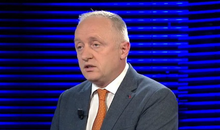
 Flash News
Flash News
The mystery of Renis Dobra's murder, the two main leads of the investigation are revealed
Rama's ultimatum: On Monday, all heads of administrative units must be dismissed
Fires in the country, 4 fires still active, what is the situation?
Rama targets Shkodra prosecutor again: Gjeli wrote philosophical essay with innocence of illegal construction
Wanted for theft, 26-year-old arrested in Durrës
'Politics challenges justice' with candidates under investigation for corruption issues
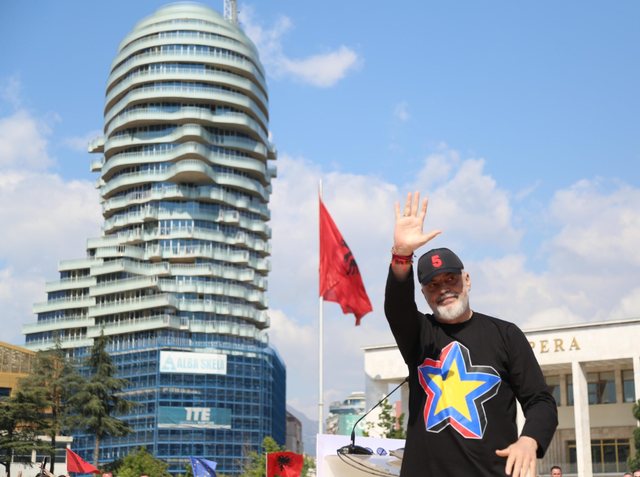
The two major political parties have included in their lists of MPs a dozen people under investigation or trial by the Special Anti-Corruption Structure, challenging, according to political researchers, the justice institutions and the electorate.
A decade after the unanimous vote in Parliament on the law to decriminalize politics, the two main forces in the May 11 elections, the Socialist Party and the Democratic Party, are running on closed and open lists a dozen people who are currently being investigated by the Special Prosecution Office, SPAK.
Despite the fact that corruption is one of Albania's major problems and politics is heading towards elections with promises to fight against the phenomenon, on the lists of candidates for MPs you find people who are being investigated or tried for criminal offenses of corruption, abuse of office, money laundering or other similar suspicions.
On the Tirana list, the Socialist Party is running former Foreign Minister Olta Xhaçka, currently under investigation for "abuse of office", the chairwoman of the Laws Committee, Klotilda Bushka, who is being investigated for obstruction of justice, and MP Plarent Ndreca, currently on trial for the crime of "violation of equality in tenders".
SPAK is also conducting investigations against the SP candidate in Fier, former Tax Director, Ceno Klosi, as well as the current Minister of Defense, candidate on the Vlora list, Pirro Vëngu, following reports filed by the Democratic Party.
On the opposition side, in addition to President Sali Berisha, currently on trial for what is known as the "Partizani" complex affair, the arrested leader of the Freedom Party, Ilir Meta, on charges of corruption and money laundering, as well as the leader of the Republican Party, Fatmir Mediu, currently on trial for his role in the tragedy in Gërdec that killed 26 people, are also running.
The Democratic Party has even included in the list former judges who resigned or were dismissed from the vetting process, such as Gjin Gjoni in Lezha and Arian Ndoja in Durrës.
Although the above candidacies do not conflict with the law, for political analysts and researchers they clearly demonstrate the challenge that the two major political forces are making to justice, as well as the crisis of the values and standards of Albanian democracy.
"This leads us to the big classic problem of Albanian democracy, the fact that we have an electorate that does not function with high moral political standards and that has no problem voting for these people, despite knowing that they may be under investigation by SPAK or have problems with the justice system," says Ermal Hasimja, an analyst and researcher in Political Science.
“And this is the fundamental problem of democracy in Albania,” he added.
Challenge to justice
Prej vitit 2015, Shqipëria ka adoptuar një ligj të veçantë për garantimin e integritetit të personave që zgjidhen apo emërohen në funksione publike, si kundërpërgjigje ndaj suksesit të personave me rekorde kriminale në zgjedhjet parlamentare të vitit 2013 dhe zgjedhjet lokale të vitit 2015. Ligji përjashton përgjithmonë nga politika persona të përfshirë në krim të organizuar, ndërkohë që personat e dyshuar për vepra të tjera penalizohet vetëm pas dënimit të formës së prerë.
Dekriminalizimi i politikës apo integriteti i kandidatëve u kthye në një çështje qëndrore të debatit politik gjatë dekadës së fundit – e megjithatë duket se gjërat janë kthyer në kahun e kundërt.
Sipas Rigels Xhemollarit, drejtor i organizatës “Qëndresa Qytetare”, partitë kryesore kaluan shumë shpejt nga një fushatë e madhe kundër kriminalizimit të politikës, në promovimin e kandidatëve apo figurave me akuza mbi shpinë.
“Në listat e PD – PS janë shtatë kandidatë në listat e sigurta nën hetim nga SPAK, të akuzuar për korrupsion, fshehje pasurie dhe bashkëpunim me krimin e organizuar,” tha Xhemollari.
“Kjo nuk është vetëm një sfidë, por një rrezik për drejtësinë pas datës 11 maj, pasi këta individë me shumë mundësi do të bëhen pjesë e Kuvendit dhe do kenë në dotë të ndikojnë në reformimin apo deformimin e sistemit të drejtësisë,” shtoi ai.
Edhe Mentor Beqa, lektor i teorive politike në Universitetin “Aleksandër Moisiu” në Durrës, e sheh kandidimin e personave nën hetim si një sfidë ndaj sistemit të drejtësisë. Beqa thekson gjithashtu se gara për pushtet në Shqipëri ka marrë përparësi ndaj ndërtimit të institucioneve të pavarura.
“Kjo tregon një brengosje reale për autonominë e SPAK-ut dhe rrezikun që ai përfaqëson për një klasë politike të caktuar, e jo më një përplasje të thjeshtë deklarative”, thotë Beqa.
Beqa thekson se përfshirja e personave të hetuar në listat zgjedhore ka ekspozuar gjithashtu një nivel të lartë hipokrizie politike, që shkon përkundër retorikës për mbështetje të drejtësisë. Ai sjell si shembull sjelljen e Partisë Socialiste pas arrestimit të kryetarit të Bashkisë së Tiranës, ku edhe vetë kryeministri Rama – që pretendon se është mbështetës i SPAK-ut – iu bashkua retorikës kundër këtij institucioni.
“Ka një kontradiktë thelbësore mes deklaratave publike për mbështetje të drejtësisë dhe praktikave konkrete të përzgjedhjes së kandidatëve,” vëren Beqa.
“Kandidimi i personazheve me të kaluar problematike përforcon idenë e instrumentalizimit të politikës për të ushtruar presion mbi sistemin e drejtësisë,” thekson ai, ndërsa parashikon që pas 11 majit, raporti ndërmjet institucioneve të drejtësisë dhe atyre të zgjedhura do të jetë vendimtar për konsolidimin e shtetit të së drejtës në vend.
Problem i demokracisë
Përveç sfidës ndaj institucioneve të drejtësisë, studiuesit e politikës vlerësojnë partitë e mëdha po i bëjnë karshillëk edhe elektoratit me kandidimin e personave nën hetim apo gjykim nga drejtësia.
In fact, contrary to what might be expected, these people are on the candidate lists as it is thought that they can bring even more votes to their respective parties.
Hasimja says that this element is not only an indicator of the standard of political parties, but also of the electorate. According to him, the problem has deep roots and in past elections the situation was even more serious with the inclusion of persons linked to organized crime on the lists.
“It is not a problem for the main parties to use candidates with problematic CVs. They have collaborated when they could, especially Rilindja, even with the criminal world,” recalls Hasimja. “The government and the parties know that the electorate does not have these standards and consequently the only thing they think about is getting as many votes as possible,” he added.
The same opinion is shared by Mentor Beqa, according to whom "a significant part of society is captured or influenced through mechanisms of clientelism, patronage or social and economic dependence." According to him, in such a context, the candidacy of individuals connected to the criminal world is not a coincidence, but part of a strategy to guarantee influence in certain areas.
Another aspect of concern for analysts is the use of candidacy as a form of legal or political protection for individuals under investigation. While for many, candidacy may seem like an ordinary political career, for these individuals it represents an opportunity to seek refuge from criminal prosecution.
“We are not just dealing with individual protection efforts,” Beqa emphasizes. “A clear message is being conveyed: justice institutions, and SPAK in particular, must adapt to the new balances of power if they want to survive politically,” he says.
Xhemollari, meanwhile, criticizes what he sees as the silence of political parties on this issue and warns that this could have an impact on the behavior of politicians towards the new justice institutions after the May 11 elections.
"Political leaders at the start of the election period openly expressed their stance towards the special structure, when Rama targeted it as "state security" and Berisha promised to dissolve it...," recalls Xhemollari.
He adds that political leaders moderated their stance in the campaign due to the high trust that citizens have in SPAK, but warns: "this softening of tone is a disingenuous electoral stance."/BIRN
Latest news

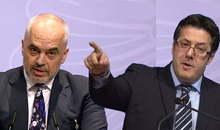

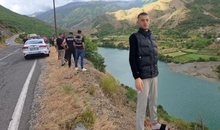
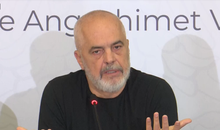
Rama's ultimatum: On Monday, all heads of administrative units must be dismissed
2025-07-11 11:05:59
Fires in the country, 4 fires still active, what is the situation?
2025-07-11 10:56:23
Government irony: Rama strips Dredha of power, then demands law and order
2025-07-11 10:49:10
German media: Vlora Airport 'kills' one of Europe's largest wetlands!
2025-07-11 10:37:46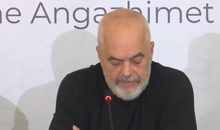

Amid the Alps in Theth, the law punishes even those who try to respect it
2025-07-11 10:14:16
Wanted for theft, 26-year-old arrested in Durrës
2025-07-11 10:03:29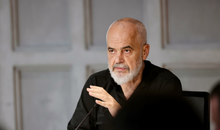
After the dismissals, Rama gathers the mayors in Durrës
2025-07-11 09:42:29
Released on bail, Salianji appears before the Probation Service
2025-07-11 09:34:28

Haxhi Qamil Rama and the directors of the Municipalities!
2025-07-11 09:21:35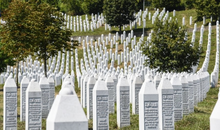
30 years since the Srebrenica massacre in Bosnia and Herzegovina
2025-07-11 09:10:52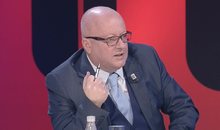

From rhetoric to brandy, POLITICO: 9 things Nigel Farage can do in Albania
2025-07-11 08:53:35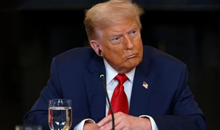
Trump announces 35% tariffs on Canadian goods
2025-07-11 08:39:29
Foreign exchange, how much foreign currencies are sold and bought today
2025-07-11 08:24:25

Horoscope, what do the stars have in store for you today?
2025-07-11 07:59:39
Sun and high temperatures, weather forecast
2025-07-11 07:41:09
Morning Post/ In 2 lines: What mattered yesterday in Albania
2025-07-11 07:20:14
Zhupa: In Theth, some Austrian strategic investors want the empty area
2025-07-10 22:57:08
Malltezi: SPAK admits, we are in a process that began with Balla's false report
2025-07-10 22:34:16

Si të çliroheni nga bllokimet emocionale me anë të ushtrimeve
2025-07-10 21:57:24

Lala: Veliaj wanted to return as mayor
2025-07-10 21:40:46

VIDEO/ Brawl in Bolivian parliament, deputies physically clash
2025-07-10 21:20:30


Albania experienced one of the longest heat waves of the last decade
2025-07-10 21:01:09

The Government approves new procedures for declaring residence in e-Albania
2025-07-10 20:39:32

Koka: Northerners will not forget Edi Rama's racist operation in Theth
2025-07-10 20:18:24
The 3 zodiac signs that will be most affected by the 'Full Moon' of July 10
2025-07-10 20:04:49
New director of the National Center of Cinematography appointed
2025-07-10 19:51:12
Korça/ 40-year-old man jumps from fifth floor balcony, in critical condition
2025-07-10 19:40:19
'Tired Woman'/ The Syndrome That Affects Thousands of Women Every Day
2025-07-10 19:34:02
Jane Birkin's original Hermès bag sells for $10 million
2025-07-10 19:26:22

Britain-Ukraine agreement signed for 5,000 Thales missiles
2025-07-10 19:00:25
Fire in Zvërnec, flames endanger two hotels
2025-07-10 18:57:19
Croatia restores compulsory military service
2025-07-10 18:39:01
Spahia: The great truth of the strong accusation of the residents of Theth
2025-07-10 18:35:07


The Supreme Court left him in prison, Meta addresses the 'Constitution'
2025-07-10 17:57:21
New punishment with 'new' regulations
2025-07-10 17:54:46
EU translator fired over fears for Zelenskyy's safety
2025-07-10 17:45:37
'You are a policeman, but not God, take my soul', protest for Agon Zejnullahu
2025-07-10 17:41:21


Video/ Rama repeats the scenario, kneels before Meloni again
2025-07-10 16:56:31
He set fire to a plot of olive trees, 50-year-old man arrested in Shijak
2025-07-10 16:46:19

Rubio: US and Russia have exchanged new ideas for Ukraine peace talks
2025-07-10 16:36:20
Death of 27-year-old, Lipjan Police Commander Resigns
2025-07-10 16:21:28
Video/ An apartment burns in Tirana near the New Bazaar
2025-07-10 16:09:36


Jensila lights up the internet with her birthday greetings to Ledri
2025-07-10 15:42:08
They're full of pesticides! List of 12 products we need to be careful of
2025-07-10 15:31:04

Worker falls from scaffolding in Shëngjin, urgently sent to Trauma
2025-07-10 15:11:03
Malltezi: Within one day they seized my accounts, properties and shares
2025-07-10 15:01:23
EU: Israel has agreed to more aid to Gaza
2025-07-10 14:55:19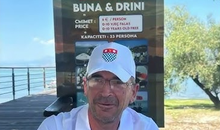

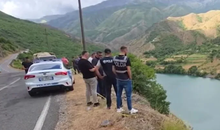
Murder of Reni Dobra, 23-year-old's vehicle pulled from the water
2025-07-10 14:29:23
Trump's tariffs on Brazil raise coffee prices
2025-07-10 14:16:07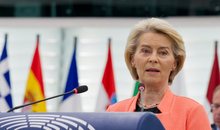
Ursula von der Leyen survives no-confidence vote
2025-07-10 14:04:27


Fire in Lezha, flames near electrical substation
2025-07-10 13:32:24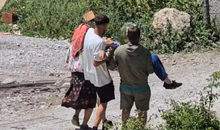
Residents clash with police in Theth, a woman faints
2025-07-10 13:24:38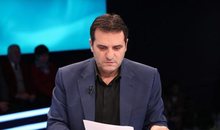
"Rama and Xanun"
2025-07-10 13:15:46

Zodiac signs most likely to get divorced in July 2025
2025-07-10 12:45:51
A scapegoat for an illegitimate Republic
2025-07-10 12:35:02
"He has devastated his own nation"/ Berisha: Rama imprisons his opponents!
2025-07-10 12:26:54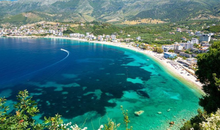

Albanian man injured with knife in Italy
2025-07-10 12:08:55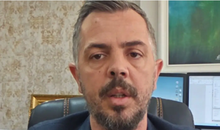
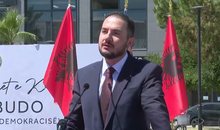
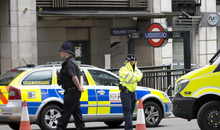



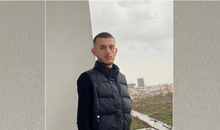
23-year-old in Mat drowned with rope, 4 suspects are being held
2025-07-10 10:58:53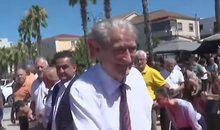
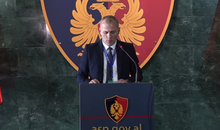
After the dismissals, the new director of the Shkodra Police is appointed
2025-07-10 10:30:10
BIRN: Rama's action for public spaces, a repeated spectacle
2025-07-10 10:29:11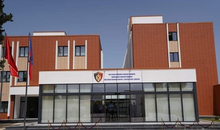
Action in Theth, Shkodra Police leaders dismissed
2025-07-10 10:16:28
Fatal accident on the Tirana-Durres highway
2025-07-10 10:01:58
